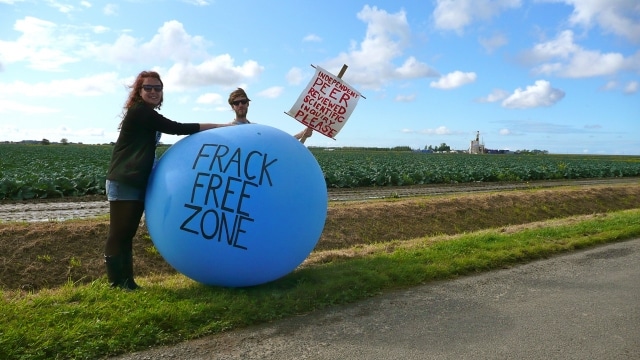A victory for green campaigners comes as the UK’s transparency watchdog rules that the Department of Environment, Food and Rural Affairs (DEFRA) must release an un-redacted version of its Shale Gas: Rural Economy Impacts report.
Greenpeace appealed to the Information Commissioner’s Office in March to force the department to release the report in full arguing that “a sensible sustainable way forward is required and all information needs to be released to ensure transparency and good choice of solutions for our energy needs going forward.”
The redacted report released last summer was blanked out 63 times within 13 pages, including a whole section on the impact of fracking on house prices. DEFRA now has until the end of July to publish the report in full.
Lancashire Decision
Greenpeace argued that an un-redacted version should be released before a critical vote by Lancashire authorities on whether or not to grant fracking firm Cuadrilla planning permission for two sites in the area.
With the Lancashire decision due next week this looks unlikely. However, the news may give some councillors pause for thought; in February Lancashire County Council made similar calls for an un-redacted copy of the report to be released, arguing a decision could only come from having access to the full report.
Transparency watchdog has ordered gov to release a previously heavily redacted report in full: http://t.co/ZtHzwizlaB pic.twitter.com/ySnMBOZnp2
— Greenpeace UK (@GreenpeaceUK) June 18, 2015
The shale gas report, released under a Freedom of Information request by Request Initiative on behalf of Greenpeace, has gained considerable attention since it was first released, with MPs calling for its release and David Cameron ducking questions about it on several occasions.
Strong Public Interest
DEFRA however, has repeatedly argued that the information in the report is incomplete and in draft form. Releasing it would therefore “mislead” the public the department says.
But as the ICO ruling states: “The Commissioner gives limited weight to the argument that the information at issue is misleading and/or confusing. In particular, he considers that DEFRA’s submissions fail to specify why it is unable to provide a statement accompanying disclosure that explains that the information may be inaccurate or misleading and why.”
Given the “novel and environmentally invasive nature of fracking” the ICO concludes that “there is a strong public interest in understanding the full detail of the research that has been carried out and how it has been considered.”
Photo: Justin Woolford via Flickr
Subscribe to our newsletter
Stay up to date with DeSmog news and alerts






